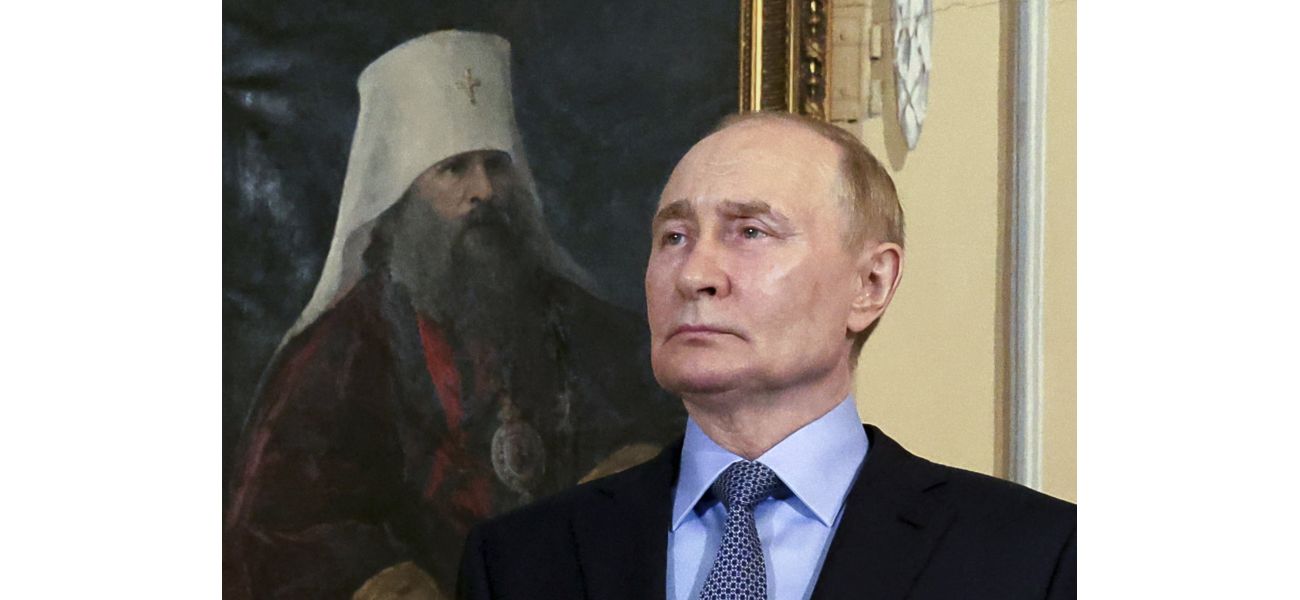Putin wants to punish foreigners for 'russophobia' by making it a crime.
September 24th 2024.

The Russian government has recently shown its support for a new draft bill that has been proposed by President Vladimir Putin. This bill aims to address what the Kremlin sees as a growing issue of "russophobia" among foreigners outside of Russia. In order to combat this, the government has approved changes to the Criminal Code that would punish any discrimination against Russian citizens or residents by those from other countries, as well as any calls for such actions.
The government's approval of this draft law comes as no surprise, as it is just the latest in a series of attempts to bring attention to what they believe is a spreading anti-Russian sentiment. According to the Interfax news agency, the government has even gone as far as to say that trials for those charged under this law can be held in absentia. However, while the draft has been approved, there is still some debate over the severity of the punishment. Currently, the law states that those found guilty will be banned from certain positions and activities in Russia, but the government believes this is not practical as it would also affect those who do not live in the country.
But what exactly is "russophobia"? This term refers to a dislike, fear, or hatred towards Russia, its people, or its culture. It was popularized by Putin himself in an attempt to discredit his critics and align himself with the Russian people. However, the exact definition of what constitutes discrimination against Russian citizens and residents is still unclear.
In the past, Putin has used the term "russophobia" to justify his actions, particularly in regards to his invasion of Ukraine. However, many experts, such as Yale University professor Timothy Snyder, argue that this term is simply a means for Putin to justify his war crimes. They point out that the harm being done to Russian culture is primarily a result of Russia's own policies and actions, including the emigration of creative individuals, attacks on independent journalism, and mass killings of Russian speakers and citizens.
Despite the Kremlin's claims, critics argue that accusations of anti-Russian sentiment are unfounded. Former British ambassador to Serbia, Sian MacLeod, explains that the term "russophobia" has been revived by Russian spin doctors to create a false narrative that anyone who criticizes Putin's actions must be prejudiced against Russia and its people. She highlights that Putin's regime is known for its intolerance of dissent and often uses repressive measures to silence critics.
In the end, the term "russophobia" seems to be nothing more than a political tool used by the Kremlin to deflect criticism and justify their actions. As tensions continue to rise between Russia and the rest of the world, it remains to be seen how this draft law and its vague language will be enforced. But one thing is for sure, the term "russophobia" will continue to be a contentious topic in the ongoing debates surrounding Russia's actions and policies.
The government's approval of this draft law comes as no surprise, as it is just the latest in a series of attempts to bring attention to what they believe is a spreading anti-Russian sentiment. According to the Interfax news agency, the government has even gone as far as to say that trials for those charged under this law can be held in absentia. However, while the draft has been approved, there is still some debate over the severity of the punishment. Currently, the law states that those found guilty will be banned from certain positions and activities in Russia, but the government believes this is not practical as it would also affect those who do not live in the country.
But what exactly is "russophobia"? This term refers to a dislike, fear, or hatred towards Russia, its people, or its culture. It was popularized by Putin himself in an attempt to discredit his critics and align himself with the Russian people. However, the exact definition of what constitutes discrimination against Russian citizens and residents is still unclear.
In the past, Putin has used the term "russophobia" to justify his actions, particularly in regards to his invasion of Ukraine. However, many experts, such as Yale University professor Timothy Snyder, argue that this term is simply a means for Putin to justify his war crimes. They point out that the harm being done to Russian culture is primarily a result of Russia's own policies and actions, including the emigration of creative individuals, attacks on independent journalism, and mass killings of Russian speakers and citizens.
Despite the Kremlin's claims, critics argue that accusations of anti-Russian sentiment are unfounded. Former British ambassador to Serbia, Sian MacLeod, explains that the term "russophobia" has been revived by Russian spin doctors to create a false narrative that anyone who criticizes Putin's actions must be prejudiced against Russia and its people. She highlights that Putin's regime is known for its intolerance of dissent and often uses repressive measures to silence critics.
In the end, the term "russophobia" seems to be nothing more than a political tool used by the Kremlin to deflect criticism and justify their actions. As tensions continue to rise between Russia and the rest of the world, it remains to be seen how this draft law and its vague language will be enforced. But one thing is for sure, the term "russophobia" will continue to be a contentious topic in the ongoing debates surrounding Russia's actions and policies.
[This article has been trending online recently and has been generated with AI. Your feed is customized.]
[Generative AI is experimental.]
0
0
Submit Comment





